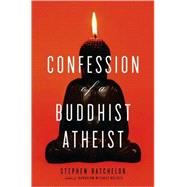
Note: Supplemental materials are not guaranteed with Rental or Used book purchases.
Purchase Benefits
What is included with this book?
| Preface | p. ix |
| Monk | |
| A Buddhist Failure (I) | p. 3 |
| On the Road | p. 8 |
| The Seminarian | p. 19 |
| Eel Wriggling | p. 32 |
| Being-in-the-World | p. 45 |
| Great Doubt | p. 60 |
| Layman | |
| A Buddhist Failure (II) | p. 81 |
| Siddhattha Gotama | p. 97 |
| The North Road | p. 111 |
| Against the Stream | p. 125 |
| Clearing the Path | p. 136 |
| Embrace Suffering | p. 150 |
| In Jeta's Grove | p. 163 |
| An Ironic Atheist | p. 174 |
| Vidudabha's Revenge | p. 184 |
| Gods and Demons | p. 195 |
| Tread the Path with Care | p. 212 |
| A Secular Buddhist | p. 225 |
| Appendixes | |
| The P&abar;li Canon | p. 241 |
| Was Siddhattha Gotama at Taxil&abar;? | p. 245 |
| Turning the Wheel of Dhamma | p. 253 |
| Map: The Buddha's India | p. 255 |
| Notes | p. 259 |
| Glossary | p. 275 |
| Bibliography | p. 281 |
| Acknowledgments | p. 287 |
| Index | p. 289 |
| Table of Contents provided by Ingram. All Rights Reserved. |
The New copy of this book will include any supplemental materials advertised. Please check the title of the book to determine if it should include any access cards, study guides, lab manuals, CDs, etc.
The Used, Rental and eBook copies of this book are not guaranteed to include any supplemental materials. Typically, only the book itself is included. This is true even if the title states it includes any access cards, study guides, lab manuals, CDs, etc.
Excerpted from Confession of a Buddhist Atheist by Stephen Batchelor
All rights reserved by the original copyright owners. Excerpts are provided for display purposes only and may not be reproduced, reprinted or distributed without the written permission of the publisher.